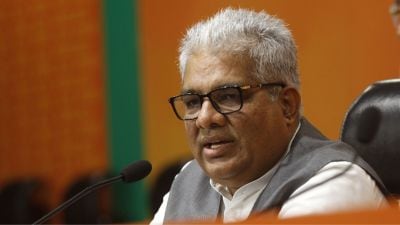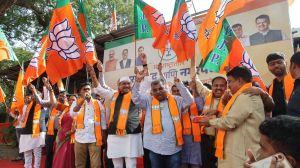First Teesta,now Mamata objects to enclaves pact: Fear Bangla influx
The other question Banerjee has raised is that of compensation for these people.
The Indo-Bangla Land Boundary Agreement,the signature achievement of Prime Minister Manmohan Singhs visit to Dhaka last year,has run into fresh trouble with West Bengal Chief Minister Mamata Banerjee having second thoughts on her governments consent to the settlement package.
This has put the Centre in a bind because parliamentary ratification of the agreement will be extremely difficult without the political go-ahead of Trinamool Congress,a constituent of the UPA government. The BJP had passed a strong resolution last September,warning the Centre against moving on this agreement without taking the sentiments of the states into account.
New Delhi has already cut a sorry figure in Dhaka with Banerjee withdrawing her governments consent to the Teesta river water sharing agreement on the eve of the PMs visit. India had to to pull out after having principally agreed to the text of the document. If this agreement too fails to go through,sources said,the PMs historic visit will end up in a disaster,drawing a blank on all key deliverables.
Banerjees immediate problem is with the Centres claim that the exchange of enclaves will not lead to mass displacement of population because a joint census revealed that most people want to stay where they are. Indian estimates are that not more than 700 people will cross over from Bangladesh to India. She has contested this claim,saying her information is that thousands are likely to cross into West Bengal once India offers to accept those staying in Indian enclaves.
Sources said the Centre has decided to send a team of officials from Home and External Affairs ministries to hold discussions with West Bengal on the influx fears.
The other question Banerjee has raised is that of compensation for these people. The Centre agreed for a monetary package and the details are still in the works. But she has conveyed that the state government must have final say in the package as it should not spark demands elsewhere in the state.
These doubts have put an abrupt halt to the governments efforts to table the agreement in Parliament for ratification. The Centre does have written consents from all state governments,West Bengal included,on the parameters for the boundary settlement but that may not be enough to carry the day in Parliament.
More so,the MEA has maintained that Constitutional Amendment under Article 368 will be required for ratification. This would mean passage by simple majority of at least two-thirds of the members present and voting. There are also demands that the amendment should be ratified by the legislatures of the states whose boundaries stand affected.
- 01
- 02
- 03
- 04
- 05































